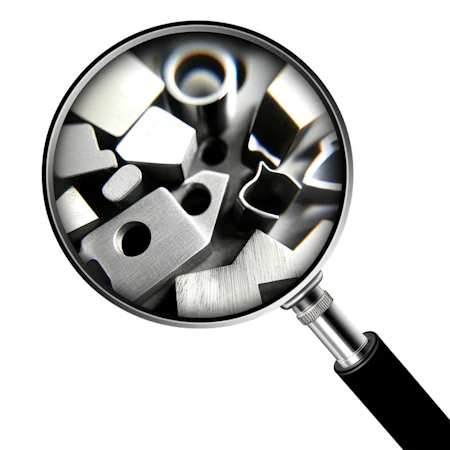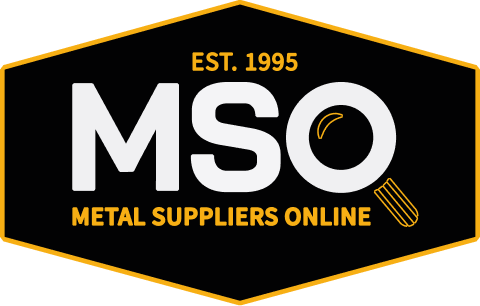Back To Browse
Titanium
Titanium 13V-11Cr-3Al
Annealing Procedure
Full annealing can be obtained by heating to 1450 F for 15 minutes, followed by air cooling. For STA condition, hold at 900 F for 4 hours and air cool.
Applications
High strength airframe components including wire springs.
Cold Workability
The cold working characteristics of this alloy are similar to those found in austenitic stainless steels. In multiple forming operations, intermediate stress relieving is recommended to offset the alloy's tendency to work harden. Post-work annealing is recommended to reattain maximum performance characteristics.
Forgeability
Recommended forging temperatures are between 1950 and 2150 F.
Formability
This alloy can be hot or cold formed and will exhibit characteristics equivalent to those found in a 1/8 to 1/4 hard austenitic stainless steel.
Hot Workability
Hot forming will reduce both the springback and required forming forces, and will increase the overall ductility of the material.
Machinability
As a family, titanium and its alloys have developed a mystique as a nightmare to machine. This is simply not the case. Experienced operators have compared its characteristics to those found in 316 stainless steel. Recommended practice includes high coolant flow(to offset the material's low thermal conductivity), slow speeds and relatively high feed rates. Tooling should be tungsten carbide designations C1-C4 or cobalt type high speed tools.
Other Physical Properties
Beta Transus (F +/- 25) 1325
Principle Design Features
This is a heat treatable, beta alloy titanium generally considered for high strength applications. It combines good fabricability with excellent corrosion resistance and mechanical properties. It is not generally available at the distributor level, but is widely available from producers in sheet, strip, plate, forgings and wire. Beta Transus (F +/- 25) 1325.
Weldability
Rated as "good" in terms of weldability.
Known Forms
Flat Bar
Forgings-Discs
Hexagon Bar
Open Die Forgings
Pipe-Seamless
Pipe-Welded
Plate
Round Bar
Seamless Rolled Rings
Sheet
Square Bar
Strip
Tube-Round (Seamless)
Tube-Round (Welded)
Wire-Flat
Wire-Round
Wire-Welding
Billet
Coil
Contour Rings
Mandrel Rings
Shafts
Shapes-Extruded
Welded Rings
Additional Data
Specifications
4917,4959,F-83142,T-9046,T-9047,R58010Dismiss
Chemical Elements
| Aluminum | 2.5 - 3.5 |
| Carbon | 0.05 max |
| Chromium | 10 - 12 |
| Hydrogen 2 | 0.025 max |
| Iron | 0.35 max |
| Nitrogen | 0.05 max |
| Oxygen 2 | 0.17 max |
| Titanium | Balance |
| Vanadium | 12.5 - 14.5 |
Physical Properties
Density: 0.175lb/in³
Electrical Resistivity: 140µΩ·cm
Thermal Conductivity: 0.3333BTU/hr·ft·°F
Mechanical Properties
Modulus of Elasticity – Tension: 15MSI
Thermal Expansion
| Condition | Min | Max | Expansion Coefficient |
|---|---|---|---|
| Annealed | 32 °F | 400 °F | 5.4 µin/in/°F |
| Annealed | 32 °F | 1000 °F | 5.9 µin/in/°F |
Mechanical Test Data
| Form | Sheet |
| Condition | Solution Annealed & Aged |
| Measurement Temperature | 70°F |
| Elongation | 4% |
| Tensile Strength | 170KSI |
| Yield Strength | 160KSI |
Find the metal you're looking for today.

